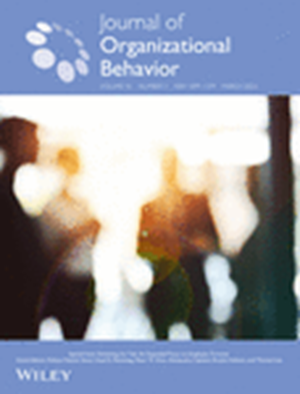Does receiving knowledge catalyze creativity? A dyadic-level contingency model of knowledge type and psychological closeness on knowledge elaboration
Abstract
Does receiving knowledge necessarily catalyze the recipient's creativity? Drawing upon the literature on knowledge management, we propose a dyadic-level contingency model in which the type of received knowledge (i.e., explicit vs. tacit) from the partner and the recipient's psychological closeness to the partner jointly determine the recipient's knowledge elaboration and consequent creativity as catalyzed by the partner's knowledge (i.e., catalytic creativity). Results based on three samples from various settings show that receiving tacit knowledge from a partner leads a recipient to elaborate the received knowledge, and this relationship is stronger when the recipient's psychological closeness to the partner is higher. This dyadic-level knowledge elaboration in turn boosts the recipient's catalytic creativity. In contrast, receiving explicit knowledge from a partner generally has a much weaker effect on the recipient's elaboration of the knowledge, regardless of whether the recipient's psychological closeness to the partner is high or low. We extend research on dyadic-level creativity by illustrating (a) the differential effects of explicit versus tacit knowledge receiving and (b) the recipient's knowledge elaboration as a mechanism and dyadic psychological closeness as a boundary condition for such differential effects.

 求助内容:
求助内容: 应助结果提醒方式:
应助结果提醒方式:


